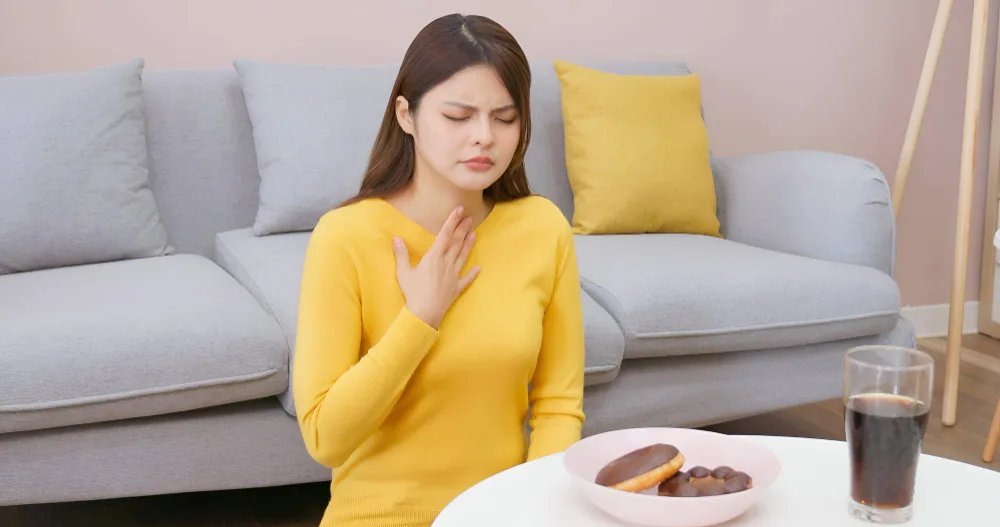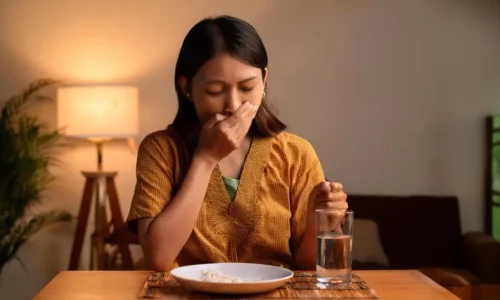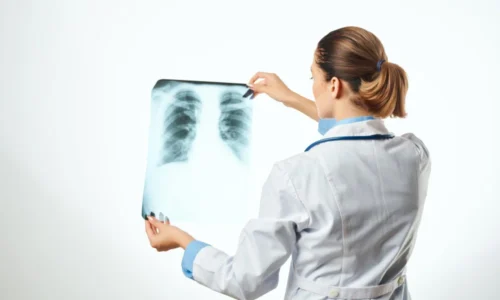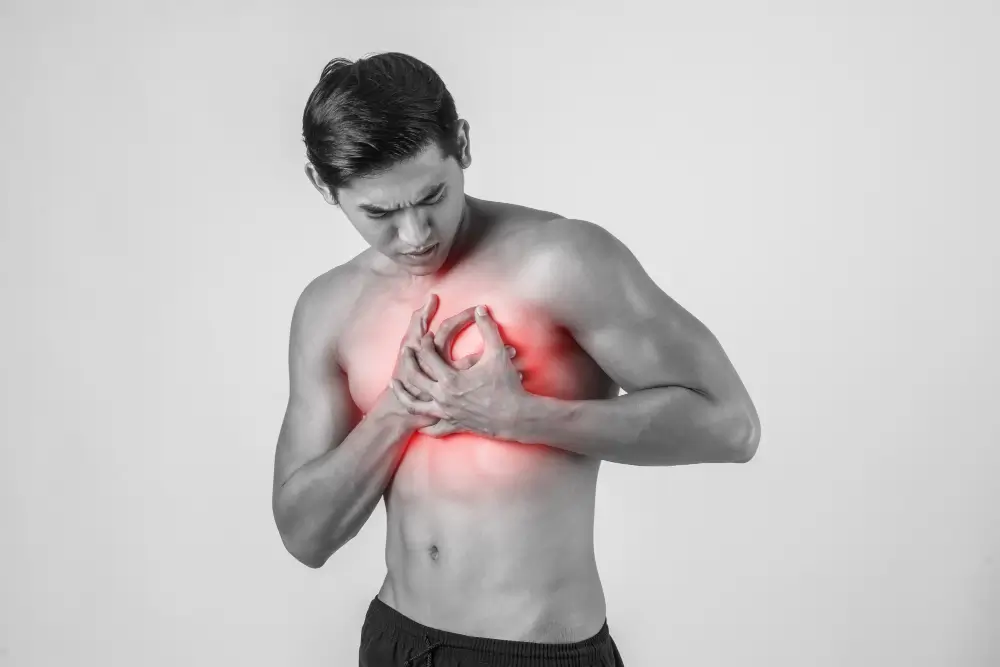Shortness of Breath After Eating: Causes, Symptoms & Relief
Have you ever felt like it’s hard to catch your breath after a heavy meal? You’re not alone. Many people experience shortness of breath after eating, and while sometimes it may be due to overeating or indigestion, in other cases, it can indicate an underlying health condition.
In this blog, we’ll explore the common causes, symptoms, risk factors, and ways to manage shortness of breath after eating effectively.

Why Does Shortness of Breath Happen After Eating?
When you eat, your stomach expands to digest food. This expansion can put pressure on the diaphragm (the muscle that helps you breathe). As a result, you may temporarily feel breathless.
However, frequent or severe shortness of breath after eating can be linked to medical conditions that require attention.
Common Causes of Shortness of Breath After Eating
1. Overeating and Bloating
Eating large meals stretches the stomach, which pushes against the diaphragm. This pressure can reduce lung capacity and cause difficulty in breathing.
Tip: Eat smaller, more frequent meals instead of heavy ones.
2. Gastroesophageal Reflux Disease (GERD)
GERD or acid reflux occurs when stomach acid flows back into the oesophagus. This can cause chest discomfort, heartburn, and shortness of breath after eating.
Tip: Avoid spicy, fried, and acidic foods. Stay upright for at least 30 minutes after meals.
3. Food Allergies or Intolerance
Some people may experience allergic reactions after consuming certain foods such as nuts, shellfish, or dairy. For individuals with COPD, these reactions can be especially dangerous, as they may cause swelling in the throat, wheezing, and shortness of breath, further worsening existing respiratory symptoms. Identifying and avoiding these trigger foods is essential to prevent additional strain on the lungs and maintain better breathing control.
Tip: Identify trigger foods and avoid them. Seek immediate medical help if symptoms are severe.
4. Obesity
Excess weight around the abdomen can compress the lungs and diaphragm, making shortness of breath after eating more common.
Tip: Maintain a healthy weight through a balanced diet and exercise.
5. Chronic Obstructive Pulmonary Disease (COPD)
For people with COPD, even simple activities like eating can make breathing difficult. The energy required for digestion, combined with reduced lung capacity, can worsen breathlessness.
Tip: Choose easy-to-digest foods and eat slowly. Consult a lung specialist if symptoms persist.
6. Asthma
Asthma patients may feel shortness of breath after eating due to acid reflux or certain trigger foods. The airways become more sensitive, leading to wheezing and breathlessness.
Tip: Work with your doctor to manage asthma and avoid food triggers.
7. Heart Conditions
Sometimes, breathlessness after meals may signal an underlying heart condition such as heart failure. When the heart struggles to pump effectively, even the act of digestion can lead to shortness of breath.
Tip: If accompanied by chest pain, swelling in the legs, or fatigue, seek medical advice immediately.
Symptoms That May Accompany Shortness of Breath After Eating
- Chest tightness
- Wheezing
- Fatigue
- Coughing
- Dizziness or lightheadedness
How to Prevent Shortness of Breath After Eating
- Eat smaller meals throughout the day.
- Sit upright while eating and remain upright for at least 30 minutes afterwards.
- Avoid trigger foods like fried, spicy, or carbonated items.
- Stay hydrated, but don’t drink too much water at once during meals.
- Maintain a healthy weight through balanced nutrition and regular activity.
Conclusion
Feeling short of breath after eating occasionally is normal, especially after large meals. However, if it happens frequently or is accompanied by other symptoms like chest pain, wheezing, or fatigue, it could be a sign of an underlying condition such as COPD, asthma, GERD, or even heart disease.
By eating smaller meals, avoiding trigger foods, and managing existing health conditions, you can reduce breathlessness and improve your quality of life.
If you often experience shortness of breath after eating, it’s best to consult a specialist. Dr. Hrushikesh Vaidya, an experienced lung specialist, can help diagnose the root cause and provide the right treatment plan.
Related Posts

Shortness of Breath After Eating: Causes & Treatment Explained by Dr Hrushikesh Vaidya
- Dr Hrushikesh Vaidya
- January 5, 2026
Experiencing shortness of breath after eating can feel unsettling, especially when it happens s ..

What is Pleural Effusion? Causes, Symptoms, and Treatment Options Explained
- Dr Hrushikesh Vaidya
- April 11, 2025
What is Pleural Effusion? Causes, Symptoms, and Treatment Options Explained Pleural effusion is ..



